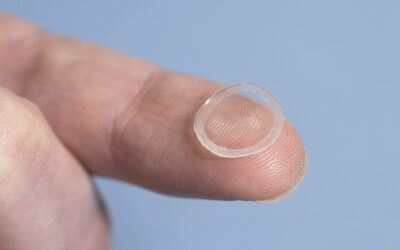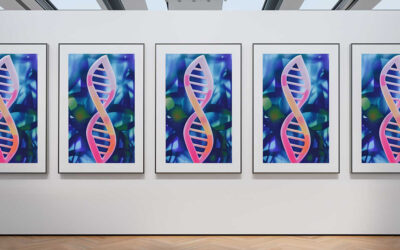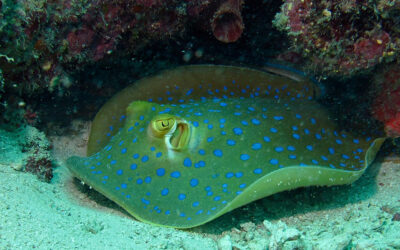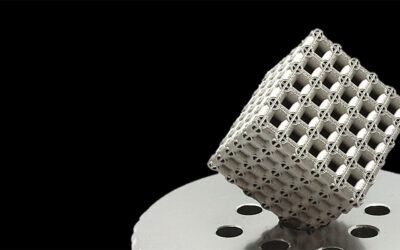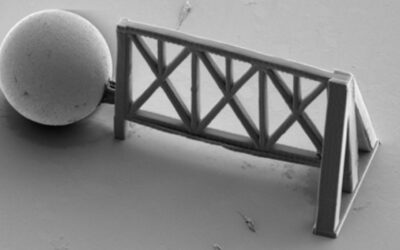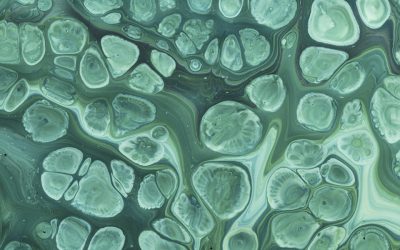Highly ordered, vertically oriented titanium oxide nanotube arrays obtained by titanium anodization have attracted huge attention because of their outstanding material properties: great biocompatibility and cell growth enhancement, excellent optical and electrical characteristics, and unique nanotubular structures with tunable dimensions. By adjusting the anodization parameters, TiO2 nanotube arrays with different diameters and lengths can be fabricated. Also various morphologies are possible, such as multilayered nanotubes, bamboo-type nanotubes, nanolaces, and branched tubes.
These nanotubes can be used in tissue engineering, drug delivery systems, orthopaedic implants, dye-sensitized solar cells, and photocatalysis, just to mention a few. Furthermore, these properties create perspectives of controlling and guiding specific cellular activities. Such novel biomaterials are referred to as ‘cell instructive materials (CIMs)’, which include nanofeatured biomaterials programmed to impart commands or instructions to living cells to dictate their fate. However, there are only very few reports about gradient TiO2 nanotube arrays so far, and there is still no systematic research for the fabrication of gradient of TiO2 nanotube arrays.
In a joint project Jia-Hua Ni, et al. from the Shanghai Jiao Tong University, China, and the University of California in San Diego, USA, present a new anodization based method for the fabrication of gradient TiO2 nanotubes. In the method, the applied anodization voltage is increased step by step. Simultaneously, a titanium foil is immersed into an aqueous solution of hydrofluoric acid progressively during anodization.
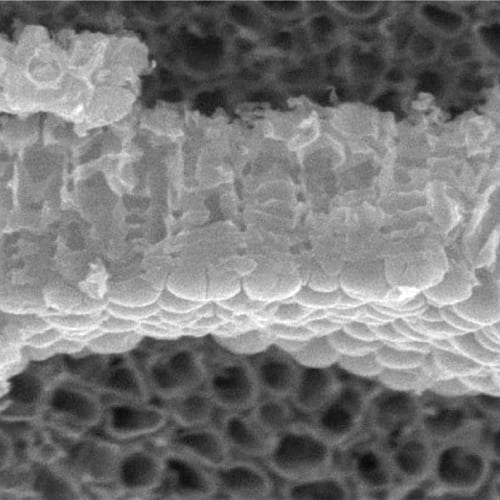 The results of the project show that the obtained gradient structure is potentially useful as new cell instructive materials for guided cell movement and culture, novel drug delivery vehicles, size-selective biosensors, or other sensor applications. Jia-Hua Ni, et al. expect that this method is universally applicable to many other types of anodized nanostructures such as for creation of gradient structured anodized aluminum oxide templates for fabrication of gradient dimensioned nanopores and gradient diameter/height electroplated nanowire arrays.
The results of the project show that the obtained gradient structure is potentially useful as new cell instructive materials for guided cell movement and culture, novel drug delivery vehicles, size-selective biosensors, or other sensor applications. Jia-Hua Ni, et al. expect that this method is universally applicable to many other types of anodized nanostructures such as for creation of gradient structured anodized aluminum oxide templates for fabrication of gradient dimensioned nanopores and gradient diameter/height electroplated nanowire arrays.
In future work, the scientists will study cell adhesion on the gradient structure TiO2 nanotube arrays. The investigation of cell adhesion on gradient TiO2 nanotube arrays may offer significant explanations and evidence towards understanding the size-selective nature of cell behavior on nanostructured surfaces, and could potentially advance biomaterials technologies for guided cell growth, adhesion, and function.












